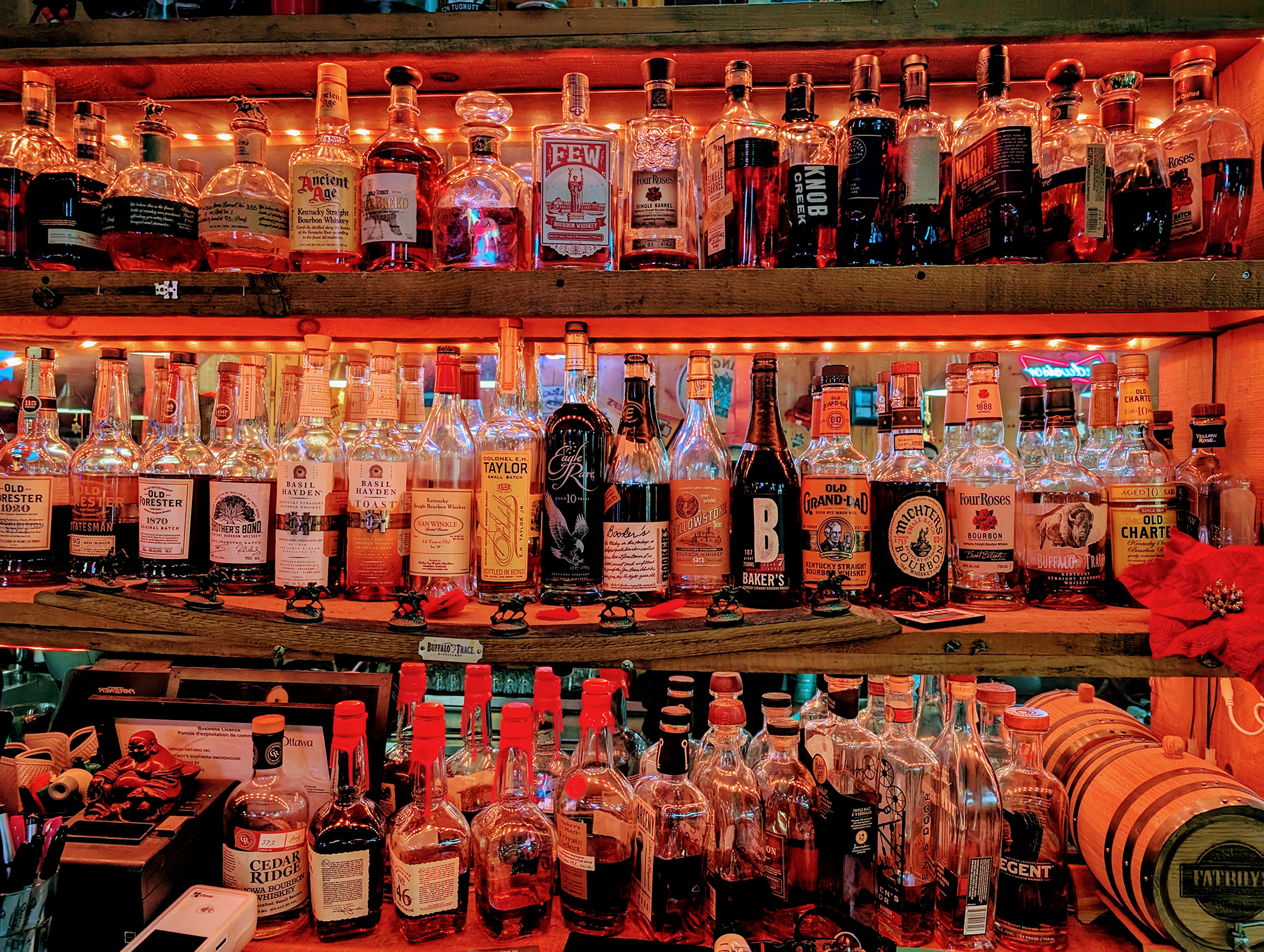
The Story of Bourbon
Bourbon has its origins in the arrival of the unique group of immigrants to the young American colonies. The first settlers were from England and were accustomed to drinking beer and gin. Another group from Scotland and Ireland drank whiskey, and brought with them the skills to make it. They settled in Pennsylvania, Maryland, and Virginia, and began distilling whiskey from whatever grain was available, including Indian Corn or maize.
It was a useful way to use surplus grain, provided the distiller with a commodity he could trade and was easier to ship and store in liquid form. It was one of America’s first “valued-added” products.
In 1791, George Washington imposed the first tax on whiskey in order to raise desperately needed revenue for his administration. Ironically, Washington himself was a noted distiller in his home state of Virginia.
True to form, the Scots and Irish distillers, among the young country’s most loyal citizens revolted. Their angry protests became known as the Whiskey Rebellion and Washington was forced to send the militia to quell the conflict and collect the tax.
Many distillers refused to pay the tax and instead pushed westward into the area that was to become the state of Kentucky. They carved out new farms from the wilderness, far from the reach of Washington’s tax collectors. They settled along the limestone belt that starts in Pennsylvania and extends into the flatlands of central Kentucky, knowing that this mineral watershed assured them the pure iron-free water they needed to distill whiskey.
This was the beginning of what is now considered the Great American Spirit
How Bourbon Got Its Name
When American pioneers pushed west of the Allegheny Mountains following the Revolution, the first counties they founded covered vast regions. One of these original, huge counties was Bourbon, established 1785 and named after the French Royal Family.
While this vast county was being carved into many smaller ones, early in the 19th century, many people continued to call the region “Old Bourbon”
Located within “Old Bourbon” was the principal Ohio River Port from which whiskey and other products were shipped to market. “Old Bourbon” was stenciled on the barrels to indicate their port of origin. “Old Bourbon” whiskey was different because it was the first corn whiskey most people has ever tasted, and they liked it. In time, “Bourbon” became the name for any corn-based whiskey.
Why Kentucky Bourbon?
Native grains – Corn is the native grain of Kentucky
Limestone iron-free water – Kentucky sits on a limestone shelf and limestone naturally filters out iron in water ( iron ruins Bourbon )
White Oak Forests – Kentucky is in the heart of the natural white oak forest
Temperature extremes – Kentucky has hot summers and cold winters, both ideal for perfect aging Bourbon
Scottish & Irish settlers – Old world came to Kentucky in the late 1700’s and brought their distilling experience
The ABC’s of Bourbon
American Made : Classic Bourbons come from Kentucky, but regardless they must be made in the United States to be classed as Bourbon
Barrels : Bourbon barrels must be aged in NEW, charred, oak barrels and cannot be reused. Most Bourbon is aged in White oak barrels
Corn : Bourbon whiskey is whiskey made from a fermented mash of NO less than 51% corn. Rye, Wheat, and Malted Barley are the main small grains used in Bourbon Whiskey
Distilled : Bourbon is distilled at NO more than 160 proof
Entered : Bourbon enters new charred, oak barrels and is aged at NO less than 125 proof
Filled: Bottles are filled at NO less than 80 proof
Styles of Bourbon
High Rye Bourbon – Bourbon that has a high Rye percentage in the mash bill (over 18%)
Traditional Bourbon – Most Bourbons fall into this category and will have a Rye percentage between 12%-18%
Wheated Bourbon – Bourbon that uses Wheat as it’s flavouring grain as opposed to Rye
Small Batch Bourbon – A product of mingling select barrels of Bourbon that have matured into a specific style. There is no number that makes a product a small batch
Single Barrel Bourbon – Bourbon drawn from one barrel that has not been combined with any other bourbons. * There is no defined definition to this term. It has become a generalized, accepted meaning
All Bourbon is Whiskey – Not All Whiskey is Bourbon
- If aged 4 years or less, you must state the age on the label ( if over 4 years, no age statement is required )
- Usually 50% or more of the flavour in Bourbon comes from the wood
- To be labeled a “straight” Bourbon, the whiskey must be aged at least 2 years (otherwise Bourbon has no minimum age requirements)
- Most Bourbon’s spell whiskey with an “e” which is the Irish spelling, but the Scottish spell it “whisky”, such as Maker’s Mark as a tribute to the Samuels’ family’s Scottish ancestry
Business Hours
MondayClosed
TuesdayClosed
Wednesday4:00 PM – 8:30 PM
Thursday4:00 PM – 9:30 PM
Friday4:00 PM – 9:30 PM
Saturday4:00 PM – 9:30 PM
Sunday4:00 PM – 8:30 PM
